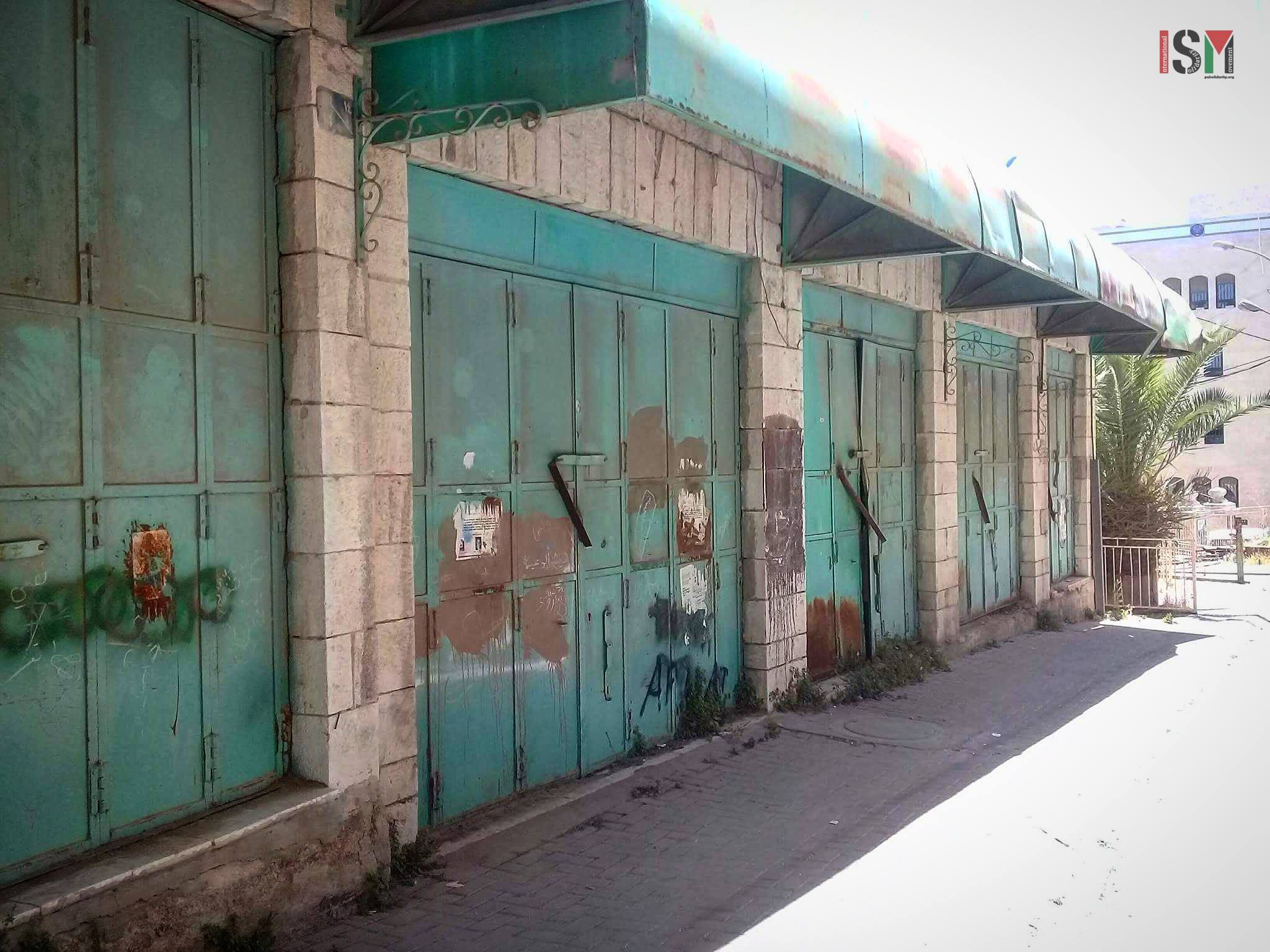-
International Solidarity Movement training days Manchester & Ireland
International Solidarity Movement training days in Manchester & Ireland Welcome to Palestine, International Solidarity Movement support group will be holding training days. If you are considering volunteering in solidarity with the Palestinian cause then you cannot miss this! This training will include, amongst others, nonviolence strategies and philosophy, group decision making and cultural considerations for […]
-
‘I am here, I resist’: ISM catches up with Nisreen Azzeh, who uses her artwork to resist against the brutal Israeli occupation of her homeland
4th June 2018 | International Solidarity Movement, Al-Khalil Team | Hebron, occupied Palestine Nisreen Azzeh’s house sits high up on a hill in the Tel Rumeida area of the occupied city of Hebron (al-Khalil is the Arabic name of the city) in the south of the West Bank. The way to her house is difficult […]
-
Entrance to Palestinian house on Shuhada Street welded shut on multiple occasions; Israeli forces and settlers assault Palestinians outside
11 June 2018 | International Solidarity Movement, Al-Khalil Team | Hebron, occupied Palestine. In the two weeks since the Zahida family moved into their new house on Shuhada street in the H2 area of occupied Hebron, they have been subjected to repeated harassment by Israeli forces and Zionist settlers, resulting in their door being welded […]
Action Alert An Nabi Saleh Apartheid Wall Arrests BDS Bethlehem Bil'in Cast Lead Demonstration Denial of Entry Ethnic Cleansing Farmers Gaza Global Actions Hebron House Demolition International law Israeli Army Jerusalem Live Ammunition Nablus Ni'lin Prisoner Ramallah Rubber-coated steel bullets Settlement Settlers Settler violence Tear-Gas Canister Video



